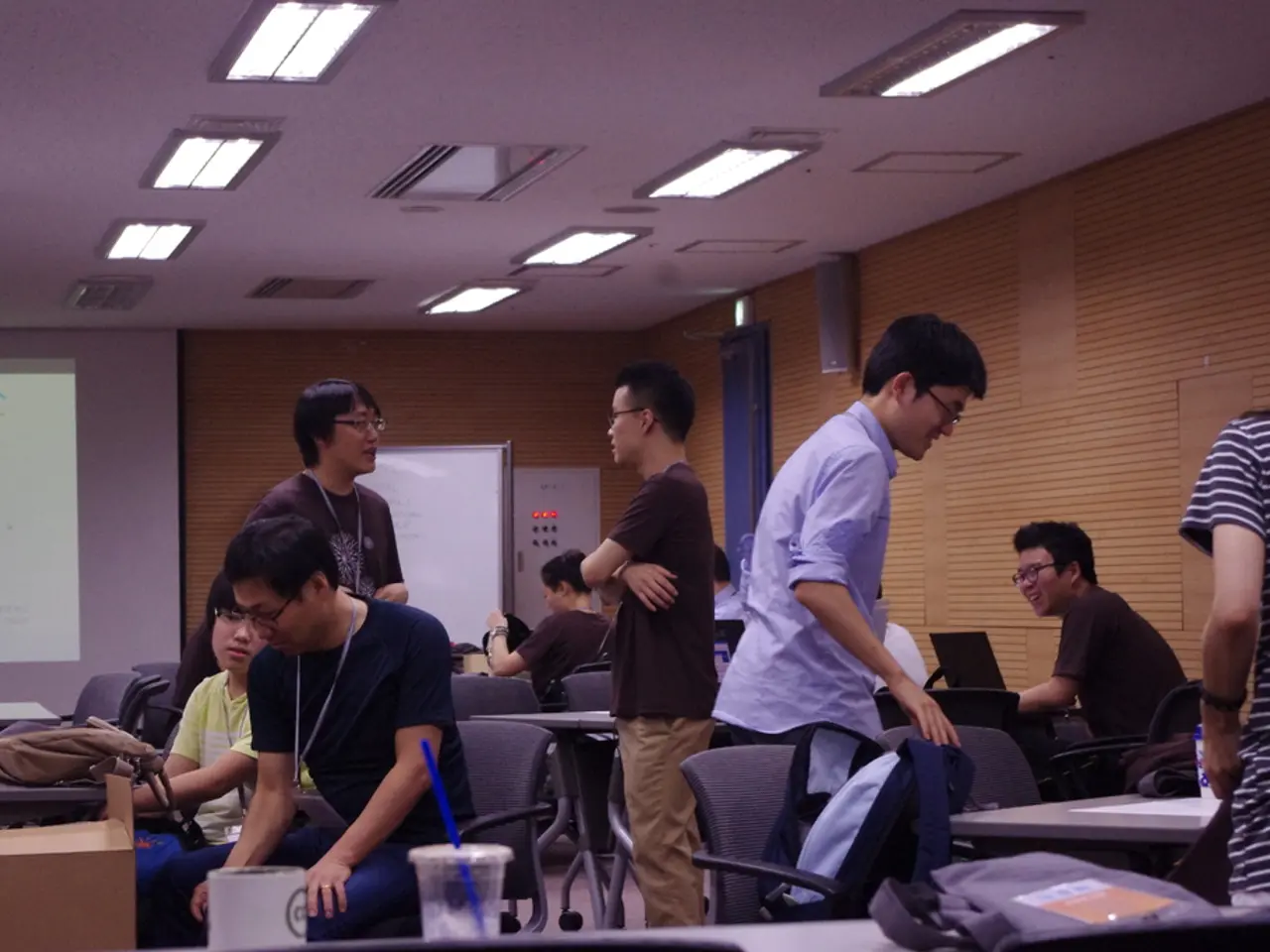Experiential Education in the Classroom Equips Pupils for Real-Life Challenges
In the heart of our community, a revolution is taking place in the realm of education. Our school is embracing a new approach to learning, one that blends academic content with authentic experiences and career readiness, enriching the lives of our students and preparing them for the future.
This innovative method is known as Real World Learning (RWL). It's a pedagogical shift that asks students to engage with art, science, and culture through excursions that broaden their worldview, tackle real-world problems, and foster future-ready skills such as critical thinking, creativity, adaptability, and communication.
At the core of RWL, you'll find several key characteristics. Students are encouraged to connect with real community or global issues, such as tackling food insecurity in a local community. They're given the opportunity to participate in authentic tasks with tangible outcomes, like launching campaigns or proposing solutions. RWL also integrates transferable future job skills, such as analytical thinking, resilience, curiosity, and technology literacy, within regular curriculum activities.
But RWL is more than just a collection of activities. It's a culture that emphasises student voice and ownership of learning, not just completing assignments. It's a consistent and school-wide culture that supports global competence, inquiry, and problem-solving.
The benefits of RWL are far-reaching. Students find increased engagement and motivation as learning becomes relevant and purposeful to their lives. They develop essential 21st-century skills that prepare them for both future careers and active citizenship. RWL encourages deeper critical thinking, questioning, and communication skills through practical application. It fosters adaptability and lifelong learning mindsets by situating learning in dynamic, real-life contexts.
In our school, students in the Middle Years Programme engage in interdisciplinary tasks that tie subjects together, such as analyzing environmental issues through science, economics, and ethics. This model connects curriculum to situations students may encounter in life, society, and work, integrating subjects as they would be encountered in the real world.
Foster Community Collaboration is another key aspect of our RWL approach. Students collaborate with nonprofits, businesses, and community leaders through interviews, presentations, or service learning projects, learning how their learning can shape real change. Guest Speakers from various fields visit classrooms to discuss their roles, challenges, and career paths, providing students with insight and opportunities for reflection.
Project-based learning at our school encourages students to lead meaningful projects, such as community service projects, creating a business plan, and multimedia presentations. The school nurtures curiosity and courage, trusting students to explore their questions. It connects learning to technology, weaving it into every level of learning, preparing students for the demands of modern life.
RWL transforms the classroom into an environment of discovery, encouraging independent thinking. Inquiry-based learning, used at our school, encourages students to take initiative, reflect on their process, and challenge assumptions. Real world learning asks students to engage with their environment, promoting critical thinking, creativity, and collaboration.
Introduce Role Play and Simulation is another tool in our RWL toolkit. Students take on real-world roles to understand different perspectives and practice decision making through simulations like Model United Nations. Industry Visits allow students to observe professionals at work, learning about potential career paths.
Our school prepares students to thrive in a complex and changing world, offering an environment where education means more than a scorecard. The school structures its curriculum around activities that bridge the gap between school and the outside world, including project-based learning and field experiences.
Inquiry and Research are at the heart of our RWL approach. Students drive their own learning through open-ended questions, local environment exploration, and personal research projects. Real world learning builds communication and leadership skills, preparing students to speak confidently and listen with purpose in diverse communities.
Real world learning strengthens academic understanding by connecting theory with practice. Field experiences at our school extend learning beyond the classroom through well-planned trips and activities. Connect Subjects to Current Events is another strategy employed, where students explore how their subjects relate to current events, examining global trends and applying classroom concepts to real challenges.
Effective communication is fundamental to real world success, and our school classrooms offer frequent opportunities for students to present findings, lead team projects, and collaborate across grade levels. In summary, Real World Learning enriches classroom education by blending academic content with authentic experiences and career readiness, making education both meaningful and future-oriented.
- Our school's innovative approach to education, Real World Learning (RWL), blends academic content with authentic experiences and career readiness, enriching the lives of students and preparing them for the future.
- At the core of RWL, students connect with real community or global issues, such as tackling food insecurity in a local community, and participate in authentic tasks with tangible outcomes.
- RWL fosters adaptability and lifelong learning mindsets by situating learning in dynamic, real-life contexts, encouraging deeper critical thinking, questioning, and communication skills through practical application.
- In our school, the Middle Years Programme encourages interdisciplinary tasks that tie subjects together, such as analyzing environmental issues through science, economics, and ethics, connecting curriculum to situations students may encounter in life, society, and work.
- Foster Community Collaboration is another key aspect of our RWL approach, where students collaborate with nonprofits, businesses, and community leaders through service learning projects, interviews, and presentations, learning how their learning can shape real change.
- RWL prepares students for the demands of modern life by integrating transferable future job skills, such as analytical thinking, resilience, curiosity, and technology literacy, within regular curriculum activities.




